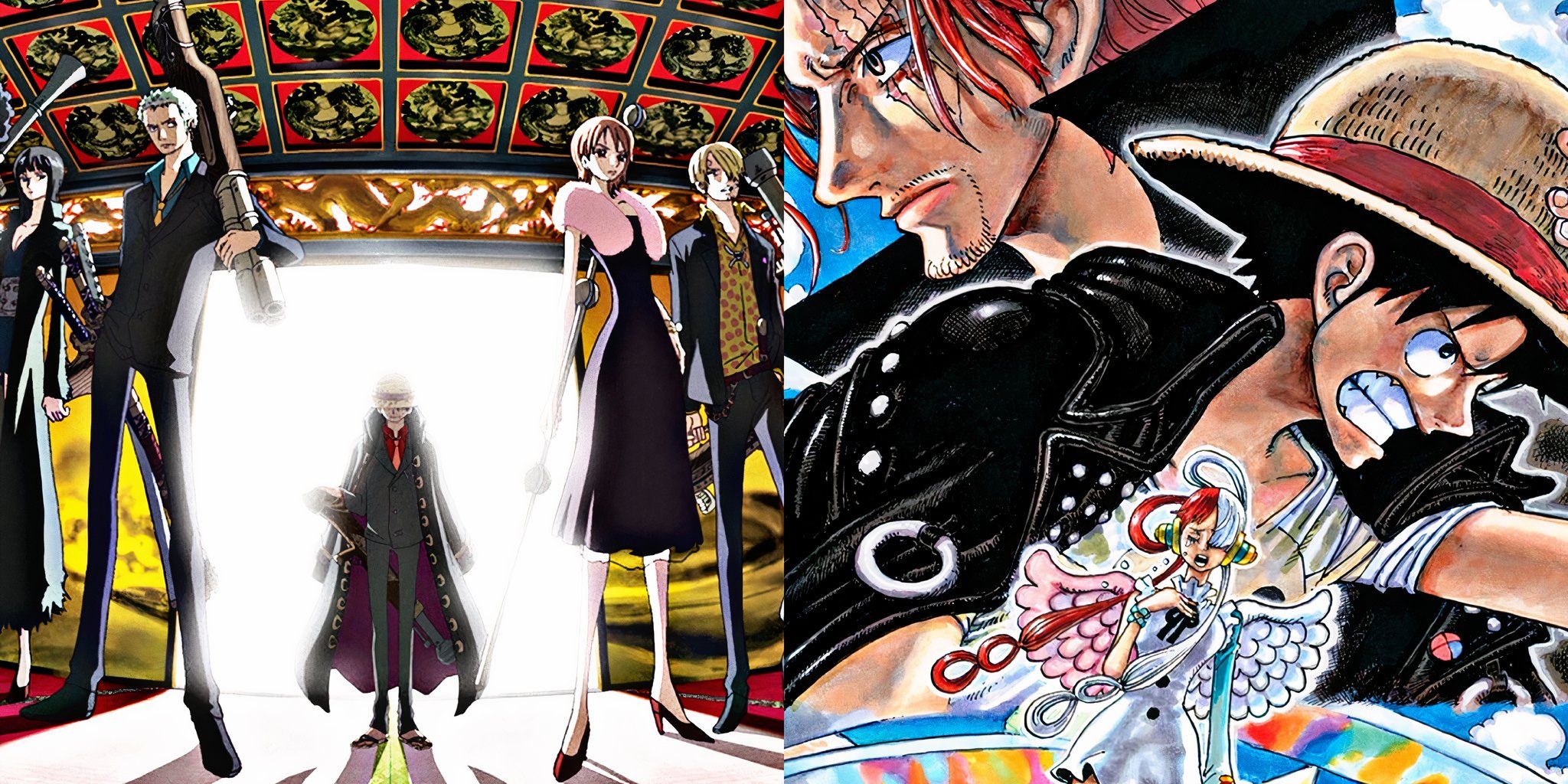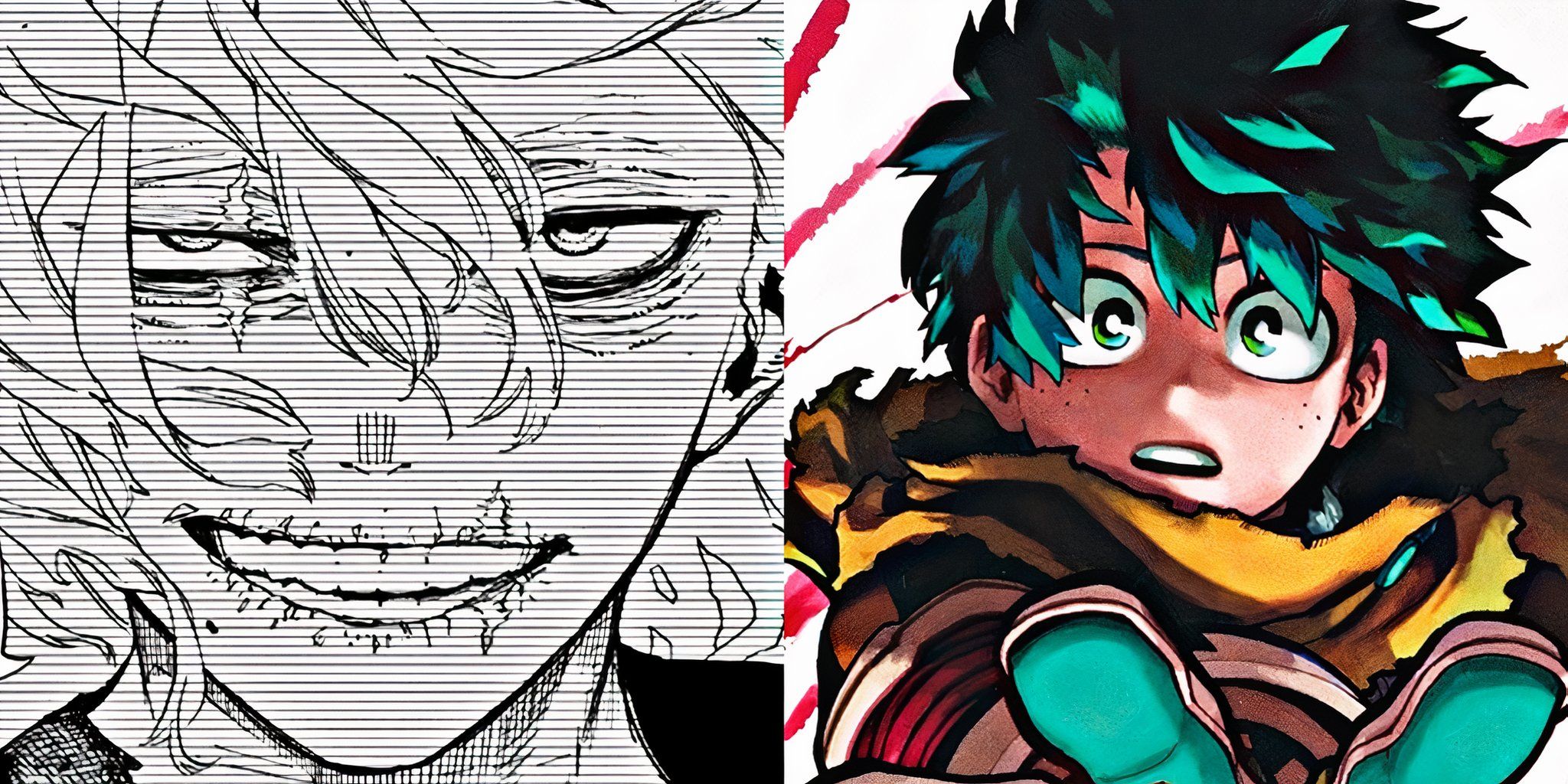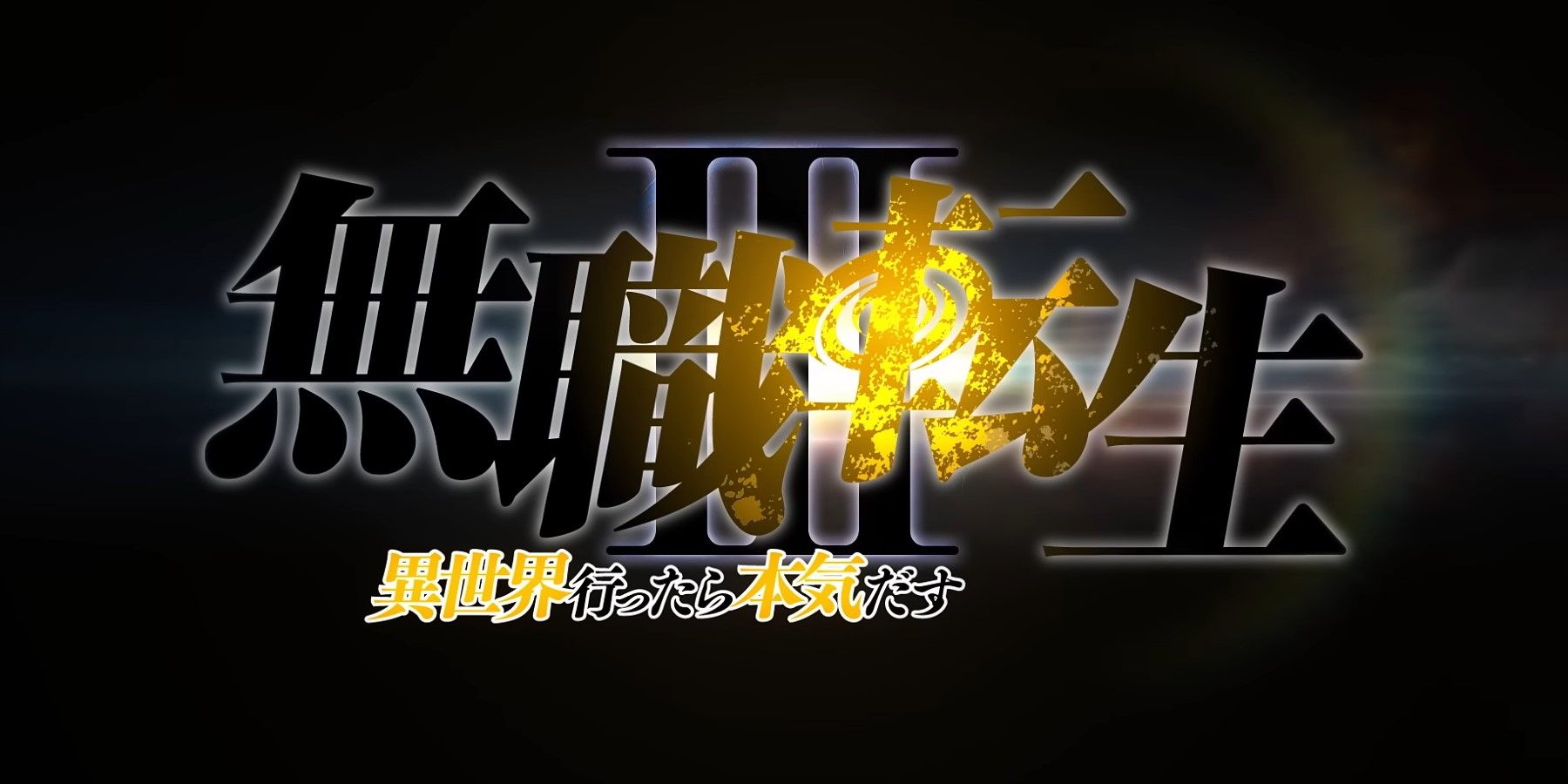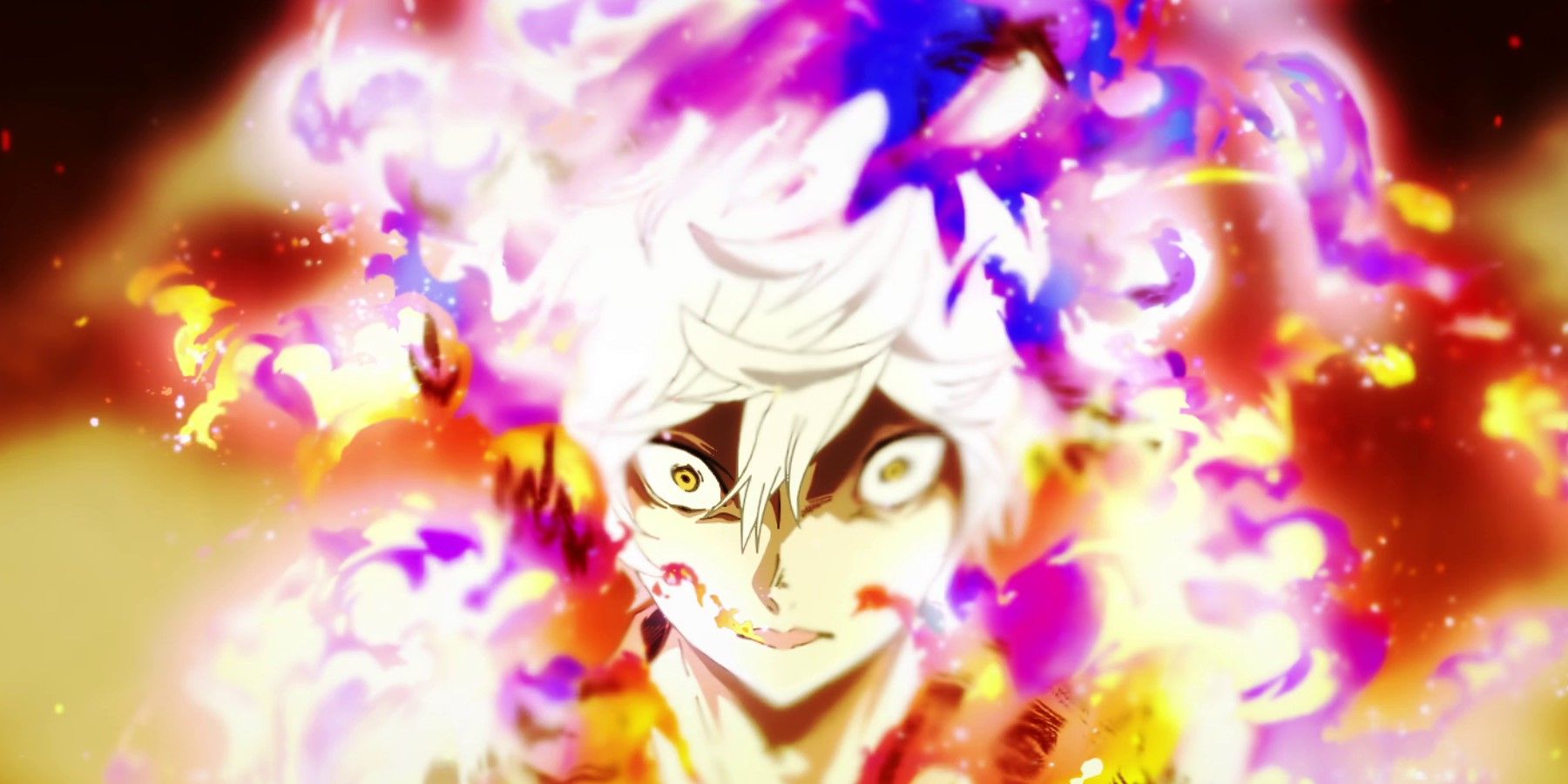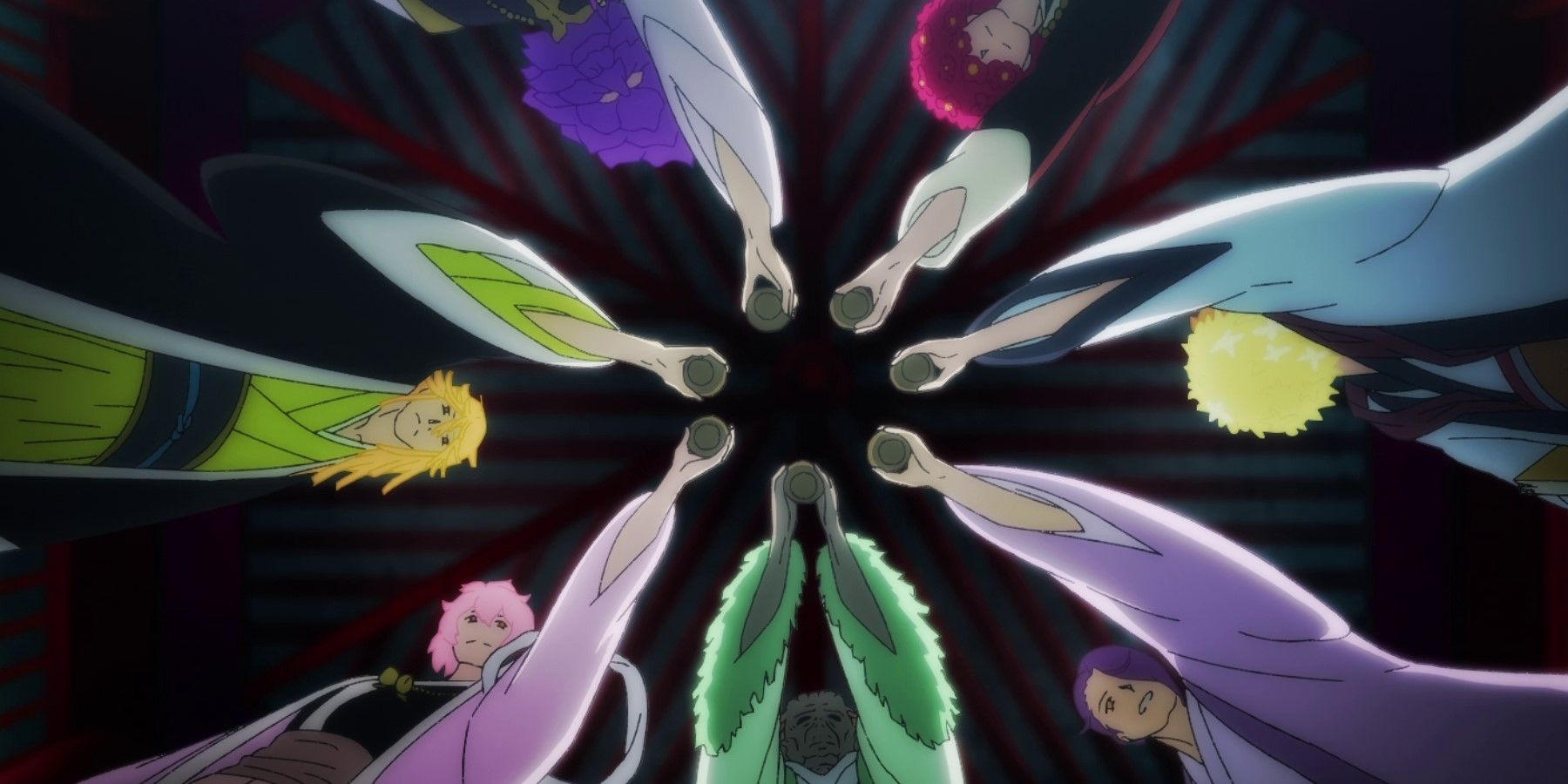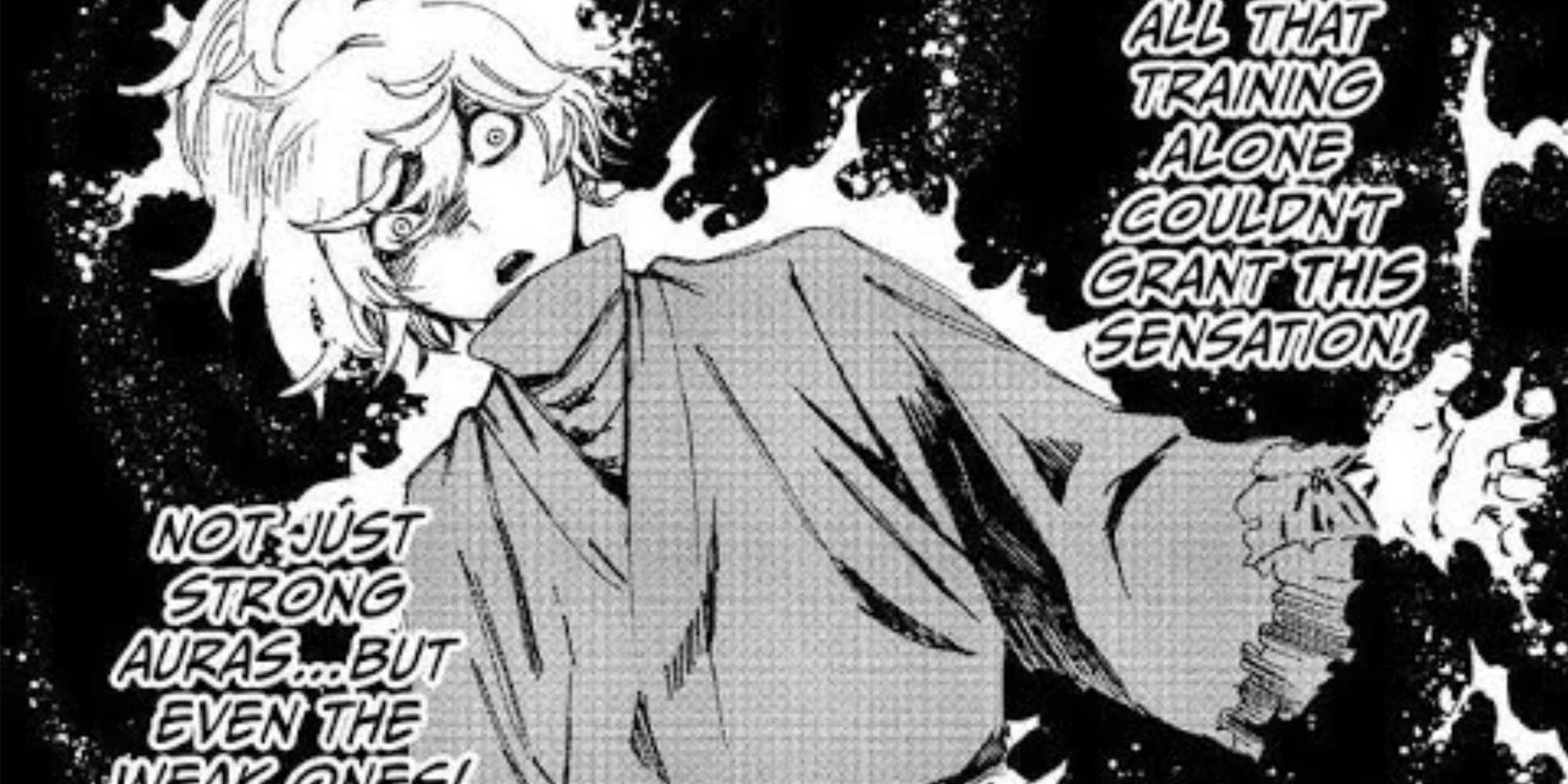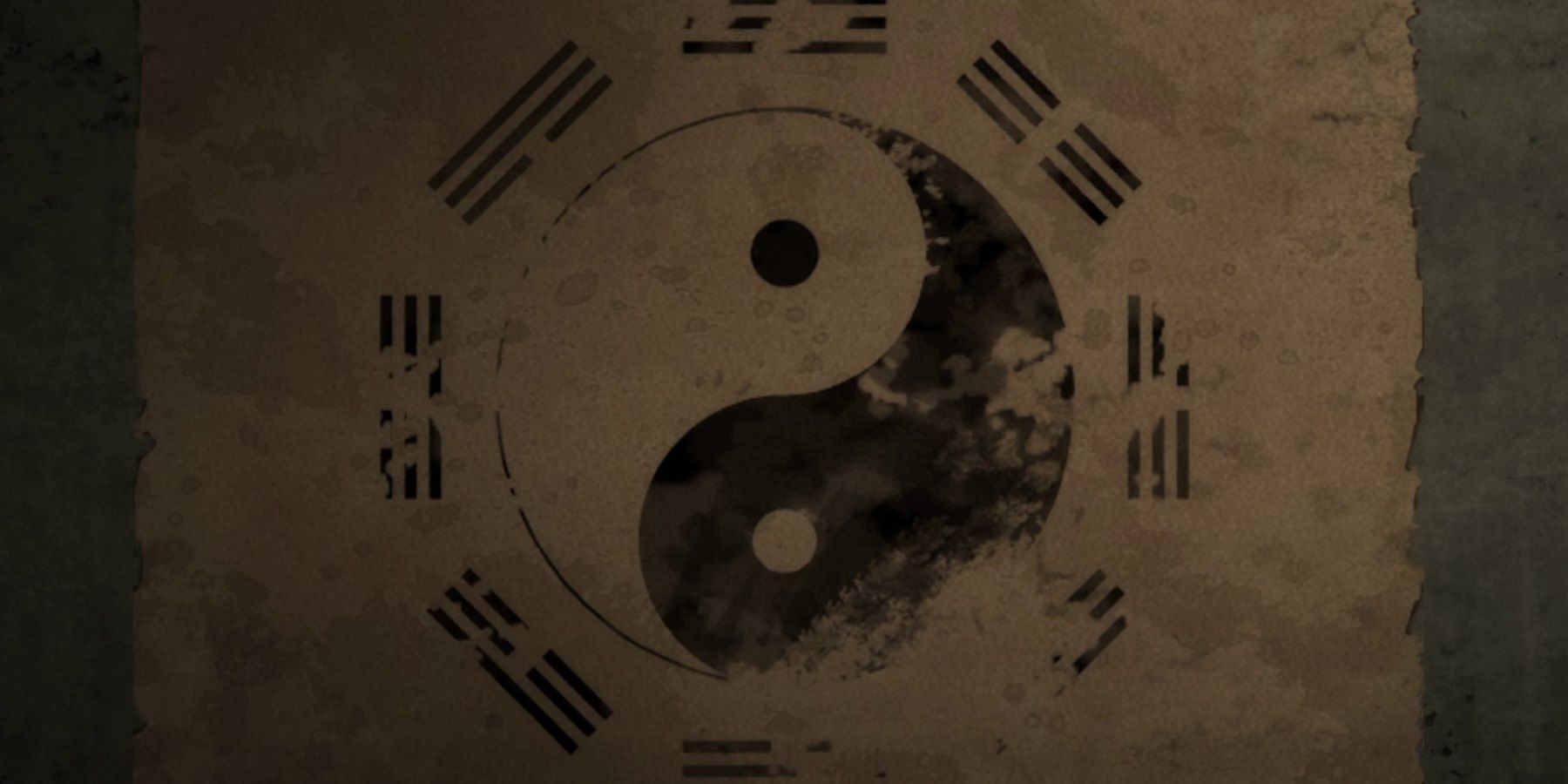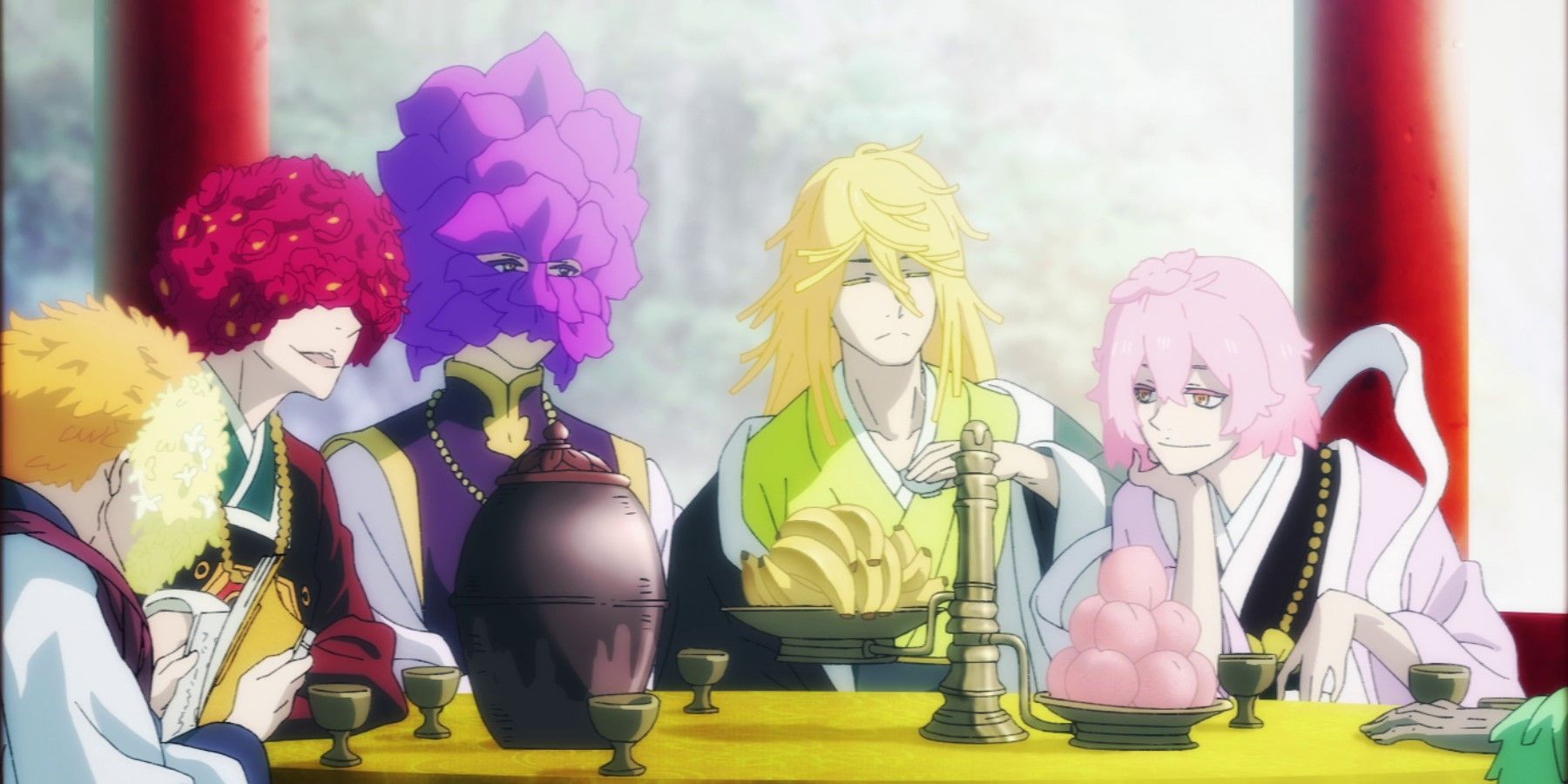With the introduction of the series' inherent power system, Tao, Hell's Paradise: Jigokuraku kicks off a whole new phase in its development of the various basic elements of the story. Now with knowledge of the deliberate structure of Shinsenkyō; the true nature of the Elixir of Life; the existence of the Tensen and even basic knowledge of the essence that flows throughout existence that is Tao, Hell's Paradise: Jigokurakudelves into the meat of the plot.
As rulers of the island, the Tensen are seen as gods, scholars-turned-masters of Tao who have achieved immortality through their rigorous training in the Five Training Paths to Immortality. The Tensen's right-hand men, the Dōshi, are students and servants seeking to gain the same understanding of reality through engaging in those same training methods – but what are they, really?
Tan
The mystical object known as "The Elixir of Life" to the shogunate and the members of the Vanguard Party ("Tokijiku no Kagu no Mi" to those from Iwagakure) is revealed to be the distillation of the life-energy of living human beings into a substance known to those who partake of it as "Tan". As seen in the actions of the Aza Brothers, a pit found somewhere on the island is the site where the Tao of humans is extracted and turned into a special drink that the Tensen, the immortal entities who preside over Shinsenkyō like gods, partake of to grant themselves additional lifespans. The Tensen are homunculi created by Rien, the wife of Chinese explorer Jofuku (Xu Fu), who had been sent to find the Elixir of Life by the emperor of the Tang Dynasty, placing his arrival on Shinsenkyō at 220 CE at the very latest. This is 1600 years prior to the end stages of the Edo Period in which the Hell's Paradise: Jigokuraku narrative is set.
Rien's objective is to complete the task given to her husband; however, rather than locate the secret to immortality, Rien's rigorous research over the course of a thousand years has led to her understanding of Tao. The Tensen, Dōshi and even the mindless Sōshin are the result of Rien's research, and they are effectively subjects whose existence are evidence of her progression in mastering Tao, and creating the perfect Elixir of Life. With not only herself, but eight others committing their existence to the mastery of Tao, Rien is capable of learning at a faster rate than if she were trying to conduct her research all on her own; however, what will prove to be invaluable to Rien's quest to create the perfect Elixir of Life is the arrival of a certain band of criminals and their samurai attendants.
Tao
One way to define Tao is to consider it the force of existence itself; the energy that makes up every living and non-living thing. The basic concept is found in various belief systems and hence goes by various names, even within Hell's Paradise: Jigokuraku; however, in the series, it is based directly on concepts found in Taoism and Buddhism. In those circles, "the Tao/Dao" (written 道, translates to "The Way") is the natural flow or order of the universe, and coming to understand this is the basis of wisdom; however, it isn't a concept that is learned and understood. Instead, awakening to the Tao lies in the experience of life as it happens, and it is primordial in that it cannot quite be grasped as an idea or concept because it is reality itself.
The nebulous nature of attempts at explaining Tao extend to the Hell's Paradise: Jigokuraku interpretation of it, with Mei's explanation of Tao being something that is "Strong. Weak", stumping even the most astute combatant in the group. The understanding of Tao as "life energy" or the force of existence itself is important to the Hell's Paradise: Jigokuraku narrative as it forms the basis of the various events that have taken place on the island of Shinsenkyō for over a millennium. One of the most important aspects of Tao yet to be introduced in the anime as of episode 11 is the "elemental" attributes that govern the flow and behaviour of Tao – effectively, the structure of Jigokuraku reality as governed by the mysterious force. This is based on the Chinese philosophy of Wuxing – the Five Phases concept that forms a cycle of activity based on the complex interactions of five primordial forces of reality: Wood, Fire, Earth, Metal, and Water.
Cycles of Reality
Wuxing is incredibly complex and varied interpretations of the various phases or agents do exist; however, the basic interactions between the five nodes remains fixed upon two perspectives: the generative interaction, which follows the elements as they feed into each other in the order seen above; or the destructive interaction, which sees Wood overcome Earth; Earth overcome Water; Water overcome Fire; and Fire overcome Metal, which overcomes Wood, bringing the cycle back to the beginning in a process that is actually alchemical in its nature and purpose.
Characters in Hell's Paradise: Jigokuraku will soon discover that their Tao has an elemental affinity, and a corresponding elemental bane, and boon. Anyway, these five elements are the basis of the Five Paths of Immortality in Hell's Paradise: Jigokuraku, in that they are the five different methods the combination of which can lead an individual to Tao mastery, an idea that is incredibly similar to the alchemical ideal of changing from lead to gold. While not outright stated in the series (or anywhere else), it is possible that the five methods correspond to the different elements, an idea supported by the fact that historically, Rien had assigned each of the Tensen to preside over a particular training method – perhaps due to a natural affinity, or more likely, due to their inherent incompatibility.
Five Training Methods
Dō'in (導引), Taisoku (胎息), Shu'itsu (守一), Shūten (周天) and Bōchū Jutsu (房中術) are the Five Training Methods required to turn an individual into a Tao master. Each of these concepts are borrowed from real-life Taoist ideas, and many have been seen in various anime and popular culture to some degree.
- Do'in is physical training and is presided over by Ran, who has Water Tao. Do'in is possibly of the Wood element. Physical strengthening in martial arts journey to mastery, and this training is to create harmony between body and mind.
- Taisoku is training through breathing techniques, and is presided over by Zhu Jin, who has Water Tao; however, Taisoku is possibly of the Fire element. Taisoku is taixi (not to be confused with "T'ai Chi"), which when broken into its kanji, refers to "breathing like an embryo", but an interesting translation by French sinologist Catherine Despaux would understand the "tai" kanji not as "embryo", but as "womb", changing "embryonic breathing" to something like "womb breathing" – breath with particular focus on the lower abdomen region, known to practitioners of martial arts like qigong as the "lower dantian" – or as they'd say in Hell's Paradise: Jigokuraku, the "Tanden", the main source of life energy; qi; ki; reishi; whatever you call it, within the body. This region is also known as the "golden stove", lending it to the element of Fire.
- Shu'itsu is training through meditation, presided over by Gui Fa, who has Metal Tao. Meditation is famous for its objective of achieving stillness, peace of mind or similar states of mind through focusing one's mind. The possible elemental association with this realm of training is Earth, as meditation is the journey towards awareness of one's self, a grounded state.
- Shūten is training through the study of the body's natural pathways and organs, presided over by Mu Dan, who has Earth Tao. Shūten's possible elemental association is Water, due to the training's focus on the flow of energy within the body.
- Bōchū Jutsu is translated to "The Art of the Bedchambers", aptly named because it is training through sexual intercourse. Tao Fa and Ju Fa, who have Wood and Fire Tao respectively, are introduced whilst in the throes of this activity, For Taoists, sexual acts are an exchange of vital energy known as jing, the internal energy within the body. Sex was seen as the connection between Yin and Yang (the bridge between heaven and earth), where mutually stimulating participants can benefit from each other's vitality. Due to the repeated concept of contrasts significant to this path, it would have the Metal element, representing the final moment in the alchemical cycle – the meeting of heaven and earth.

